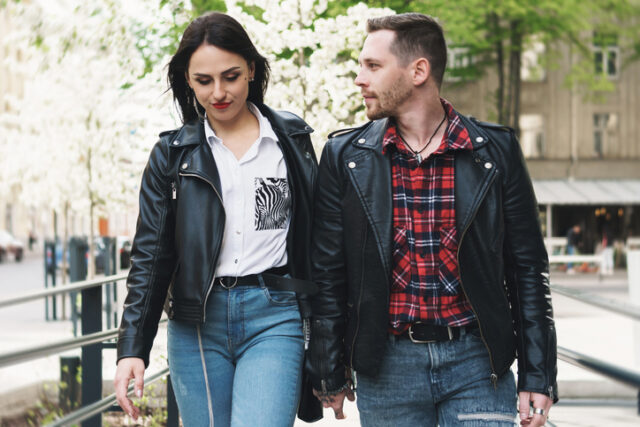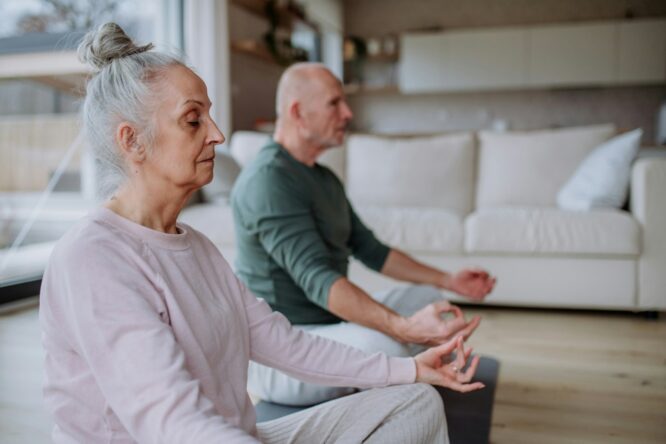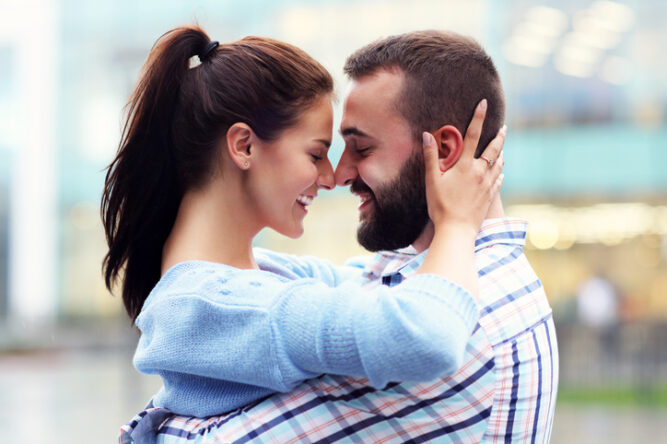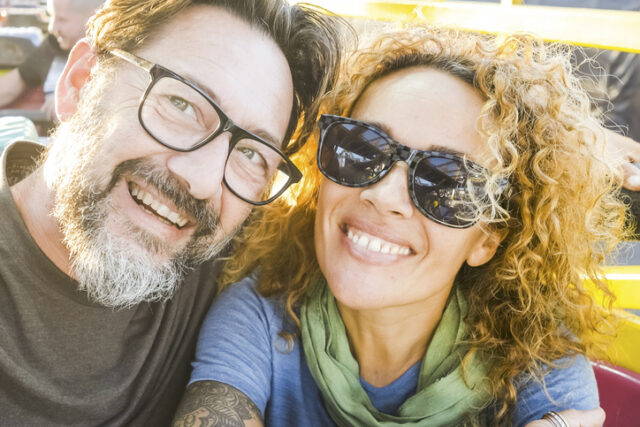We talk a lot about cutting out toxic people, but not enough about what a safe person actually looks like.

These are the ones who don’t just say the right things, but make you feel like you can exhale around them. A safe person doesn’t just avoid doing things that are hurtful or harmful—they actually help you feel more like yourself. Here are a few behaviours that quietly prove someone’s safe to be around, and a few red flags that say the opposite.
1. They respect your boundaries without making it weird.

You shouldn’t have to explain, justify, or apologise for a boundary. A safe person doesn’t push back when you say no. They don’t guilt-trip you for needing space, time, or rest. They just nod and honour it, no drama required. Unsafe people treat boundaries like a personal insult or a puzzle to solve. Safe people treat them like facts. That difference changes everything, especially if you’ve had to fight to have your limits respected in the past.
2. They’re consistent in how they show up.

Safe people don’t suddenly switch up when they’re in a bad mood, around different people, or not getting their way. You can count on them to be who they are, even if it’s not always perfect, it’s at least predictable. Inconsistency isn’t just confusing; it’s anxiety-inducing. If you’re always bracing for someone’s emotional whiplash, that’s not safety. Stability might not be flashy, but it’s what real trust is built on.
3. They don’t use your vulnerability against you later.

When you open up, they don’t file it away for future ammunition. They hold it with care. You can trust that what you say in a raw moment won’t be weaponised the next time you argue or disappoint them. Unsafe people remember your soft spots and wait for the perfect time to poke them. Safe people protect them, even when they’re hurt or frustrated. That kind of emotional maturity is non-negotiable.
4. They take accountability when they mess up.

Safe people don’t deflect, blame, or double down. They admit when they’ve hurt you and genuinely try to make it right. You don’t have to convince them that your feelings are valid—they just listen and take responsibility. When someone always has an excuse or flips the script, that’s not safety—that’s self-protection at your expense. Real accountability feels calming, not confusing. It makes repair possible instead of impossible.
5. They don’t make you feel “too much.”

If you’re excited, sad, angry, or emotional, a safe person doesn’t try to tone you down or rush you through it. They don’t need you to shrink so they can feel comfortable. They make room for the full version of you. Unsafe people often act like your feelings are a burden. Safe ones ask questions, stay present, and make sure you don’t feel like you have to apologise for being human. That presence is everything.
6. They’re comfortable with honesty, even when it’s awkward.

Safe people won’t lie to spare your feelings or avoid confrontation. They’ll say the thing—gently, respectfully, but clearly. You don’t have to second-guess them because they’re not performing—they’re showing up with the truth. If someone avoids hard conversations or sugarcoats to the point of confusion, it might feel easier in the short term, but it doesn’t build real trust. Safety grows when you know the honesty is real, not rehearsed.
7. They respect your need for space, even if they don’t fully get it.

You don’t have to constantly explain yourself or make someone feel okay about your quiet seasons. A safe person doesn’t take it personally if you need downtime or alone time. They let you be without demanding emotional explanations. Unsafe people make your needs feel like obligations. Safe people don’t need to understand everything to honour it. That kind of emotional spaciousness is what makes you feel like you can breathe around them.
8. They don’t interrupt your self-trust.

They don’t tell you what you’re “really feeling” or try to reframe your reality. A safe person trusts that you know your own mind, even if they see things differently. They might offer perspective, but they don’t override you. When someone constantly challenges your instincts or decisions, it chips away at your confidence. Safe people help you hear yourself more clearly, not less. They add support, not static.
9. They let you have needs without making it awkward.

You can say, “I need support” or “Can you help with this?” without being made to feel needy. Safe people don’t keep score or make you feel like your needs are an inconvenience. In unsafe dynamics, asking for help feels like you’re putting someone out. But with the right people, your needs don’t feel like burdens—they feel like opportunities for connection, and that changes everything.
10. They never make fun of your insecurities.

Teasing might seem harmless, but when someone jokes about something they know you’re sensitive about, it’s not playful—it’s dismissive. Safe people know where the line is, and they don’t cross it for laughs or attention. They’re aware of what hurts, and they don’t use it for entertainment. It’s not about being overly careful; it’s about knowing your pain isn’t up for public commentary. Respect isn’t conditional on mood or setting.
11. They’re not threatened by your growth.

As you change, evolve, or start asking for more, a safe person adjusts. They don’t try to pull you back to your old self to make themselves more comfortable. They want to see you grow, even if it stretches the dynamic. Unsafe people often resist your evolution. They treat it like rejection. However, safe people understand that growth doesn’t mean distance—it means deepening. And they stay open, even when it’s unfamiliar.
12. They don’t gossip about other people’s pain.

Pay attention to how someone talks about people who aren’t in the room. If they casually share other people’s private struggles, it’s only a matter of time before they do the same with yours. Safe people don’t traffic in vulnerability that isn’t theirs. When someone knows how to keep things sacred, even if it’s “just a story,” you know you’re safe to confide in them. Discretion isn’t about secrecy—it’s about emotional respect.
13. They don’t need to be the centre of the emotional spotlight.

Safe people let you have your moment without turning it into theirs. If you’re upset, they don’t one-up your pain. If you’re excited, they don’t subtly downplay it. They know when to step back and let you feel what’s yours to feel. When someone can hold space without shifting the focus, it builds trust. It means they’re not there to compete or correct—they’re just there to show up. And that’s what makes the space feel safe.
14. They support repair, not just closeness.

It’s easy to feel safe around someone when everything’s good. The real test is what happens after a disagreement. Safe people don’t ghost, gaslight, or brush it under the rug—they engage in repair. They care enough to fix what needs fixing. It’s not about being perfect; it’s about being reachable. People who can meet you in discomfort without making it worse are rare, but they’re the ones worth keeping close.
15. They don’t keep you guessing.

Safe people don’t play games, send mixed signals, or leave you wondering where you stand. You don’t have to read between the lines or decode their energy. What they say and what they do actually match. Uncertainty might feel normal if that’s what you’re used to, but it’s not healthy. Real safety feels calm, not confusing. It feels steady, even when life around you isn’t.




